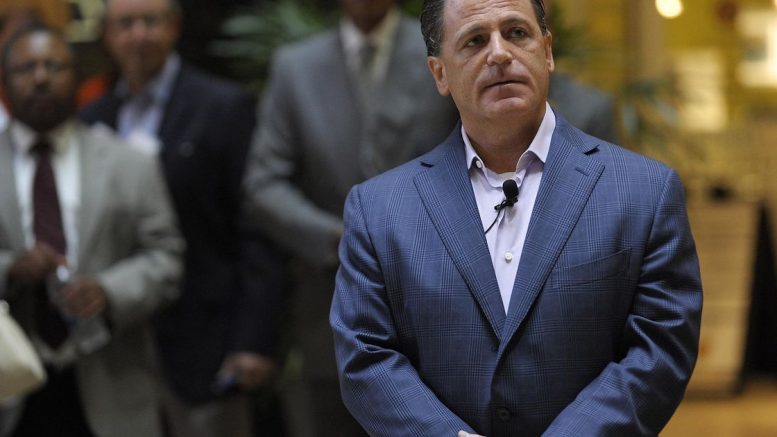Goldsmith said the statute of limitations only allows Justice to seek recovery on claims on April 23, 2009, and after. The government’s original complaint alleges that Quicken’s fraudulent conduct occurred between Sept. 1, 2007, and Dec. 31, 2011.
Goldsmith also said the government failed to file allegations to support its claims that Quicken manipulated data during the loan process.
He dismissed that portion of the lawsuit, leaving several other allegations in place, including claims that Quicken miscalculated income, ignored red flags on loan applications and created a value-appeals process, which “permitted employees to request specific inflated values from appraisers in order to make a loan eligible for FHA insurance.”
“The allegations in the complaint support an inference that (the) FHA would not have insured the particular loans at issue in this case had it known of Quicken’s alleged non-compliance with underwriting requirements,” Goldsmith wrote.
Quicken defended itself on Thursday, saying it was eager to challenge the government’s allegations before a jury.
“Quicken Loans is pleased the court recognized that portions of the Justice Department’s overreaching lawsuit against the company exceeded the bounds of legality and were dismissed narrowing the claims significantly in terms of time frame and scope,” the company said in a statement.
In its case, the government claims the company ignored “red flags” in dicey home loans that didn’t meet federal standards. The loans involved inflated appraisals, poor credit risks and borrowers with insufficient incomes, the suit says.
The government has alleged that Quicken had a culture of bending the rules and gave “speed bonuses” to underwriters. The mortgage company failed to disclose the problems with the FHA-insured loans that cost the federal government millions of dollars when they went bad, federal lawyers contend.
Quicken has said it has represented the FHA’s “gold standard” for underwriters.
Gina Balaya, a spokeswoman with the U.S. Attorney’s Office in Detroit, declined to answer how many cases in the complaint would be affected by the judge’s ruling regarding limiting cases to April 23, 2009, and after.
Balaya said her office believes the judge’s decision does not affect the amount of money in damages the government can recover.
In a previous hearing, Assistant U.S. Attorney Samuel J. Buffone told Goldsmith the scheme involved the highest levels of management at Quicken, and that he would be able to introduce “hundreds” of examples of loans that were part of the scheme.
Buffone said evidence included emails from company officials discussing the “bastard income” of borrowers. One email described how a customer was approved for a loan after he stopped paying other bills and his credit score dropped 100 points.
Quicken attorney Jeffrey Morganroth told Goldsmith then the case was about insurance and reimbursement and “the government trying to pigeon-hole insurance claims into the False Claims Act.”
Quicken is top in quality and quantity for FHA loans, has the lowest default rate, which is 0.33 percent and continues to do business with FHA, Morganroth said.
Dan Gilbert, Quicken’s chairman and founder, has said the company won’t settle.
Quicken contends the lawsuit is the result of a strategy by the Justice Department to sue banks following the mortgage collapse, which resulted in $6 billion in settlements. Quicken officials say the government “made a conscious, intentional decision to file claims against the largest FHA lenders because they are the largest lenders.”
The mortgage lender contends the government’s case is built on 55 “cherry-picked” loans out of the 250,000 FHA loans Quicken closed from 2007-11.
Court documents filed by Quicken attorneys contend the company can prove it had proper underwriting practices, complied with program and contractual requirements, and did not make false claims. It denies the existence of speed bonuses.
The case was originally filed in Washington, D.C., but Quicken won its motion to move the case to Detroit. Goldsmith was nominated to the federal bench by President Barack Obama and confirmed in 2010.
The case is expected to go to trial in spring of 2019.
It’s unclear whether the government will bring similar cases against other mortgage lenders under the administration of President Donald Trump, one financial expert said.
Amiyatosh Purnanandam, a professor of finance at the University of Michigan’s Stephen M. Ross School of Business, said under Trump he foresees deregulation in the banking sector but not with FHA loans or in mortgage lending because both Democrats and Republicans have voiced support of FHA guidelines.
“My guess is there will be a lot of deregulation across the board. That is what you see markets responding to,” he said. “With FHA, I would be surprised if they change the standards.”
Asked whether he expected the Justice Department to continue to pursue cases similar to the Quicken one, Purnanandam said he could only guess.
“I have not heard a lot about enforcement. I have only heard about deregulation. Time will tell,” he said.
Additional articles: Court Allows Lawsuit Against Quicken Over Questionable Loans to Proceed
Source: www.detroitnews.com





Be the first to comment on "Fed Suit Against Quicken Loans Passes First Test"